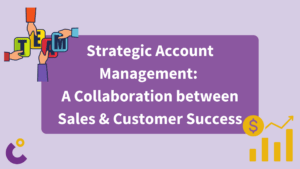
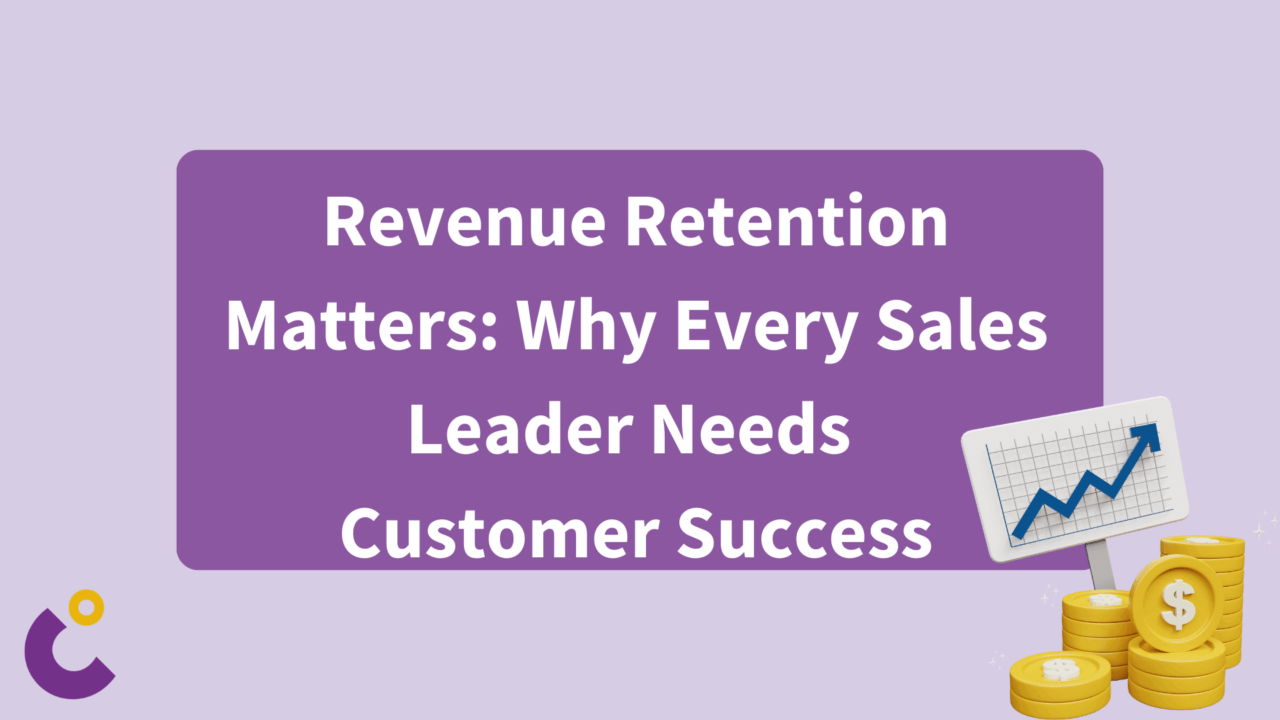
Revenue Retention Matters: Why Every Sales Leader Needs Customer Success
Customer Success is at the heart of our consulting framework and where we see the future of business growth! But retaining revenue and growing from the existing customer base isn’t just of interest for post-sales organizations. The tougher it is to generate net new sales deals, the more interesting it is to tap into the potential that lies within the existing customer base.
Why bother about Customer Success over Net New Sales
In the current economic landscape, Sales Leaders face numerous challenges in maintaining revenue streams and staying ahead of the competition. From inflation to hiring freezes, specifically the SaaS industry is suffering from some serious negative influences to growth. In such uncertain times, the focus has shifted from customer acquisition to customer retention. This shift in strategy is where Customer Success (CS) comes into play. According to Forrester’s Total Economic Impact™ (TEI) methodology, a well-designed customer success program can yield a remarkable 91% return on investment over a three-year period.
Let’s explore why every Sales Leader should prioritize Customer Success and how it can significantly benefit your organization.
Retention Over Acquisition
In uncertain economic times, customer retention becomes paramount. Acquiring new customers has surely become more costly and challenging for your sales teams. Sales leaders increasingly recognize that nurturing existing relationships through Customer Success efforts can stabilize their revenue streams and reduce the reliance on unpredictable new business.
Competitive Advantage
To differentiate your company in a crowded market is essential. CRO’s and Sales Leaders understand that providing exceptional post-sale experiences and demonstrating a commitment to customer success will set their organization apart from competitors, attracting and retaining more customers. Salesforce’s data shows that 87% of business buyers expect sales reps to act as trusted advisors, but only 61% generally trust sales reps. Customer Success Managers are trusted advisors by definition, underlining the potential to empower your Salespeople to be more trustworthy resulting in an additional USP.
Revenue Protection
Economic downturns lead to budget cuts and decreased spending by customers. Sales professionals are acutely aware that retaining existing customers and ensuring they receive value from your product or service can prevent revenue erosion. This makes Customer Success an essential strategy to adopt for protecting and growing revenue in challenging times. Gainsight’s findings suggest that only around 20% of CS organizations have primary responsibility for the upsell and cross-sell motion, indicating that most organizations have their Sales team own this motion, emphasizing the need for Sales to be equipped with CS skills.
Referrals and Advocacy
Satisfied customers can become your most effective advocates. Anyone responsible for driving revenue growth recognizes that by focusing on Customer Success, they can turn customers into promoters who refer new business. In a tough economy, these referrals can be a lifeline for acquiring new clients at a lower acquisition cost. Additionally, NICE & Satmetrix showed that referral leads have a 30% better conversion rate, compared to leads that have no connection to your promoters yet.
Increasing your Customer Lifetime Value (CLTV)
Sales leaders are increasingly focusing on the long-term value of a customer rather than just the initial sale. In a challenging economic environment, they understand that maximizing customer lifetime value through ongoing relationships and upsell opportunities is crucial for sustainable growth. Customer Success initiatives can help increase CLTV by nurturing long-term customer relationships and facilitating expansion within accounts.
Make more from the Customer Acquisition Cost (CAC)
High CAC can erode profitability. Consequently every sales organization needs strategies to acquire customers efficiently and cost-effectively, focusing on the right target audience and demonstrating ROI to justify acquisition costs. Invesp’s research reveals that 44% of companies have a greater focus on customer acquisition compared to only 18% that prioritize retention, highlighting the competitive advantage of a Customer Success-centric approach.
Data-Driven Decision Making
Modern sales leaders rely on data and analytics to make informed decisions. Customer Success provides valuable insights into customer behavior, preferences, and pain points. The additional focus of CS on the development of customer satisfaction metrics over time adds a new perspective to classic Sales metrics. This data can inform sales strategies, enabling leaders to tailor their approach to address customer needs more effectively.
Cost Efficiency in Driving Growth
It’s often more cost-effective to retain existing customers than to acquire new ones. Sales leaders appreciate that by investing in Customer Success, they can reduce the high costs associated with constantly prospecting and converting new clients. HBR shows impressively that “acquiring a new customer is anywhere from five to 25 times more expensive than retaining an existing one”
Risk Mitigation
Economic uncertainty can lead to customer churn if they perceive better value elsewhere. Customer Success is proactive by definition, so any CS efforts can mitigate this risk by addressing customer concerns, ensuring satisfaction, and preventing attrition. This strategic focus on proactive satisfaction initiatives could be a real differentiation between Sales organizations in the future.
Long story short - Customer Success for Sales Leaders
Customer Success is not just a buzzword; it’s a strategic imperative for Sales Leaders looking to thrive in today’s challenging business environment. By focusing on customer retention, building strong relationships, and leveraging the power of data, Sales Leaders can protect revenue, reduce costs, and gain a competitive edge. The data points provided demonstrate the tangible benefits of investing in Customer Success, reinforcing the importance of integrating CS into your sales strategy. Make it an integral part of your approach, and watch your organization flourish.
This might also interest you


Beyond Internal Walls: Unlocking the Power of External Customer Journey Mapping
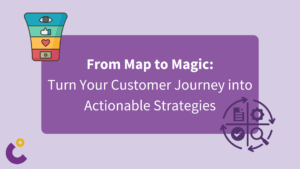
From Map to Magic: Turn Your Customer Journey into Actionable Strategies
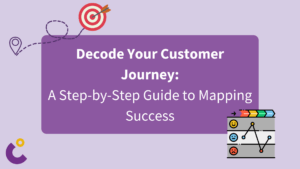
Decode Your Customer Journey: A Step-by-Step Guide to Mapping Success

Beyond the Score: Transforming Net Promoter into a Growth Engine – Net Promoter System
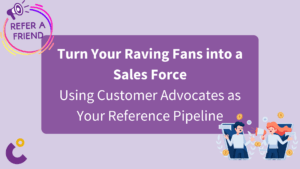
Turn Your Raving Fans into a Sales Force: Using Customer Advocates as Your Reference Pipeline
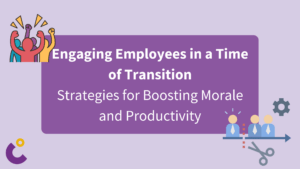
Engaging Employees in a Time of Transition: Strategies for Boosting Morale and Productivity
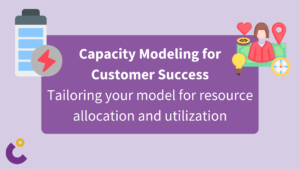
Capacity Modeling for Customer Success
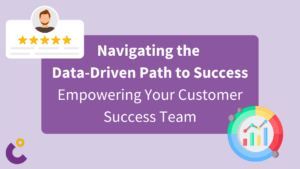
Data Driven Customer Success
